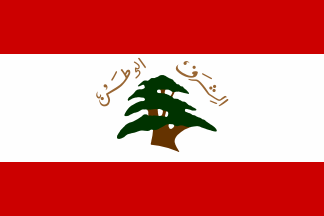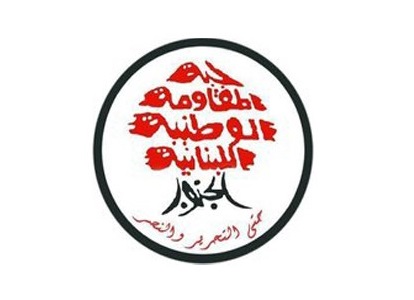|
Tigers Militia
The Tigers militia (Arabic: نمور الأحرار, transliterated: ''Numūr al-Aḥrar''; French: ''PNL "Lionceaux"''), also known as Tigers of the Liberals (Arabic: نمور الليبراليين, transliterated: ''Numūr al-Lībrāliyyīn'') was the military wing of the National Liberal Party (NLP) during the 1975-78 phase of the Lebanese Civil War. Established in the late 1960s, the NLP militia was the second major faction within the Lebanese nationalist Christian Lebanese Front coalition under the leadership of Dany Chamoun, son of the NLP's president Camille Chamoun, from 1976 until 1980, when it was forcefully incorporated into the Lebanese Forces. Origins The NLP militia was first raised in October 1968 by the former President of Lebanon Camille Chamoun at his home town of Es-Saadiyat, in the predominantly Maronite region of Mount Lebanon. Chamoun was an important za'im, or political boss, being the patriarch of the prominent political Chamoun family. He he ... [...More Info...] [...Related Items...] OR: [Wikipedia] [Google] [Baidu] |
Israeli–Lebanese Conflict
The Israeli–Lebanese conflict, or the South Lebanon conflict,G. Rongxing. ''Territorial Disputes and Conflict Management: The Art of Avoiding War''. p71. is a long-running conflict involving Israel, Lebanon-based paramilitary groups, and sometimes Syria. The conflict peaked during the Lebanese Civil War. In response to Palestinian insurgency in South Lebanon, Palestinian attacks from Lebanon, Israel invaded the country 1978 South Lebanon conflict, in 1978 and again 1982 Lebanon War, in 1982. After this it Israeli occupation of Southern Lebanon, occupied southern Lebanon until 2000, while fighting South Lebanon conflict (1985–2000), a guerrilla conflict against Shia paramilitaries. After Israel's withdrawal, Hezbollah attacks sparked the 2006 Lebanon War. A Israel–Hezbollah conflict (2023–present), new period of conflict began in 2023, leading to the 2024 Israeli invasion of Lebanon. The Palestine Liberation Organization (PLO) recruited militants in Lebanon from among th ... [...More Info...] [...Related Items...] OR: [Wikipedia] [Google] [Baidu] |
Lebanese Arab Army
The Lebanese Arab Army – LAA (Arabic: جيش لبنان العربي transliteration ''Jayish Lubnan al-Arabi''), also known variously as the Arab Army of Lebanon (AAL) and Arab Lebanese Army or Army of Arab Lebabon or Armée arabe du Liban (AAL) in French language, French, was a predominantly Islam in Lebanon, Muslim splinter faction of the Lebanese Armed Forces, Lebanese Army that came to play a key role in the Lebanese Civil War#First phase (1975–1977), 1975–77 phase of the Lebanese Civil War. Emblem Upon its creation in January 1976, the LAA adopted as emblem a badge featuring an eagle with folded wings and a Cedrus libani, Lebanese Cedar tree at the centre, holding a scroll on its claws below, which portrayed the Militant group's ideology. The eagle itself symbolised Pan-Arabism, whilst the Cedar tree represented Lebanon, and the trunk of the tree featured "Lebanon" written in Arabic script. In the scroll at the bottom was depicted a quote in Arabic that translates a ... [...More Info...] [...Related Items...] OR: [Wikipedia] [Google] [Baidu] |
Lebanese National Movement
The Lebanese National Movement (LNM; , ''Al-Harakat al-Wataniyya al-Lubnaniyya'') was a front of Leftist, pan-Arabist and Syrian nationalist parties and organizations active during the early years of the Lebanese Civil War, which supported the Palestine Liberation Organization (PLO). It was headed by Kamal Jumblatt, a prominent Druze leader of the Progressive Socialist Party (PSP). The Vice-President was Inaam Raad, leader of the Syrian Social Nationalist Party and Assem Qanso of the pro-Syrian Lebanese Arab Socialist Ba'ath Party. The general secretary of the LNM was Mohsen Ibrahim, leader of the Communist Action Organization in Lebanon (CAOL). The LNM was one of two main coalitions during the first rounds of fighting in the Lebanese Civil War, the other being the militias of the mainly Christian Lebanese Front, which comprised the nationalist Phalange, the National Liberal Party and others; as well as parts of the Maronite-dominated central government. Com ... [...More Info...] [...Related Items...] OR: [Wikipedia] [Google] [Baidu] |
Israel Defense Forces
The Israel Defense Forces (IDF; , ), alternatively referred to by the Hebrew-language acronym (), is the national military of the State of Israel. It consists of three service branches: the Israeli Ground Forces, the Israeli Air Force, and the Israeli Navy. It is the sole military wing of the Israeli security forces, Israeli security apparatus. The IDF is headed by the Chief of the General Staff (Israel), chief of the general staff, who is subordinate to the Ministry of Defense (Israel), defense minister. On the orders of first prime minister David Ben-Gurion, the IDF was formed on 26 May 1948 and began to operate as a Conscription in Israel, conscript military, drawing its initial recruits from the already-existing paramilitaries of the Yishuv—namely Haganah, the Irgun, and Lehi (militant group), Lehi. It was formed shortly after the Israeli Declaration of Independence and has participated in List of wars involving Israel, every armed conflict involving Israel. In the wak ... [...More Info...] [...Related Items...] OR: [Wikipedia] [Google] [Baidu] |
South Lebanon Army
The South Lebanon Army or South Lebanese Army (SLA; , ), also known as the Lahad Army () or as the De Facto Forces (DFF), was a Christianity in Lebanon, Christian-dominated militia in Lebanon. It was founded by Lebanese military officer Saad Haddad in 1977, amidst the Lebanese Civil War, and evolved to operate as a quasi-military during the South Lebanon conflict (1985–2000), South Lebanon conflict, basing itself in Haddad's unrecognized Free Lebanon State, State of Free Lebanon. Initially, it was known as the "Free Lebanon Army" after it broke away from the Army of Free Lebanon, another Christian-dominated militia. After 1979, the SLA's activity was almost exclusively confined to southernmost Lebanon. Under the aegis of Israel, the militia was bolstered by the 1982 Lebanon War. It came under increasing Israeli supervision following the collapse of the State of Free Lebanon in 1984 and subsequent establishment of the South Lebanon security belt administration. As the most pr ... [...More Info...] [...Related Items...] OR: [Wikipedia] [Google] [Baidu] |
Zgharta Liberation Army
The Zgharta Liberation Army – ZLA (), also known as Zghartawi Liberation Army, was the paramilitary branch of the Lebanese Marada Movement during the Lebanese Civil War. The militia was formed in the late 1960s by the future President of Lebanon and za'im Suleiman Frangieh as the Marada Brigade (also translated as Mardaite Brigade (Arabic: ''Liwa' al-Marada'') and was initially led by Suleiman Franjieh's son, Tony Frangieh, who held the command until his death in the June 1978 Ehden massacre. The ZLA operated mainly out of Tripoli and Zgharta, but it also fought in Beirut, Bsharri and Ehden, where they clashed with various Palestine Liberation Organization (PLO) guerrilla factions and their allied leftist Muslim militias of the Lebanese National Movement (LNM), as well as the rival Christian Kataeb Regulatory Forces (KRF) militia and its successor, the Lebanese Forces (LF). Origins The Al-Marada's military wing was secretly formed in 1967 and at the outbreak of the war in A ... [...More Info...] [...Related Items...] OR: [Wikipedia] [Google] [Baidu] |
Lebanese Youth Movement (MKG)
The Lebanese Youth Movement – LYM (Arabic: حركة الشباب اللبنانية , ''Harakat al-Shabab al-Lubnaniyya''), also known as the Maroun Khoury Group (MKG), was a Christianity in Lebanon, Christian militia which fought in the Lebanese Civil War#First phase (1975–1977), 1975-77 phase of the Lebanese Civil War. Origins The LYM was founded in the early 1970s as an association of Maronite Christianity in Lebanon, Maronite right-wing university students, who strongly opposed the Cairo Agreement (1969), 1969 Cairo Agreement and the presence of Palestine Liberation Organization (PLO) guerrilla factions in Lebanon, by Maroun el-Khoury (''nom de guerre'' "Bash Maroun"), the son of the former head of the Dekwaneh district of East Beirut, Naim el-Khoury. Political beliefs Being violently anti-communist and anti-Palestinian people, Palestinian, the group's ideology stemmed from the extremist Phoenicianism, Phoenicist identities espoused by the Guardians of the Cedars. The ... [...More Info...] [...Related Items...] OR: [Wikipedia] [Google] [Baidu] |
Tyous Team Of Commandos
The Tyous Team of Commandos – TTC (, ''Fariq Tyous min' al-Maghawir'') or simply Tyous for short ('Tyous' means 'Male Goat' in Arabic, also translated as the "Stubborn Ones"; "Les Têtus", "Les Obstinés" in French), was a small Christian militia which fought in the 1975–78 phase of the Lebanese Civil War. Origins The Tyous (written in Arabic as pronounced Tyoos) were quietly formed at the early 1970s in Beirut by one Al Anid, a Christian Maronite rightwing activist who strongly opposed the 1969 Cairo Agreement and the presence of Palestine Liberation Organization (PLO) guerrilla factions in Lebanon. Prior to 1975 Al Anid cultivated close relations with other Christian rightist parties and organizations, which enabled his group to receive funds and military training, namely from the Kataeb Party and the secretive Al-Tanzim. The original members of the TTC were predominantly Maronites but soon began to accept volunteers from the Syriac Christian community of Iraqi orig ... [...More Info...] [...Related Items...] OR: [Wikipedia] [Google] [Baidu] |
Al-Tanzim
Al-Tanzim, ''Al-Tanzym'' or ''At-Tanzim'' () was the name of an secret military society and militia set up by Christianity in Lebanon, Christian activists in Lebanon at the early 1970s, and which came to play an important role in the Lebanese Civil War. Emblem The emblem of the group, a map of Lebanon with a Cedrus libani, cedar tree at the center, with the phrase "You love it, work for it" written below, was designed in 1970 during an expedition made by the ''Tanzim'' to the village of Kfarchouba in Hasbaya District, Nabatieh Governorate, in order to assist the affected population in the reconstruction effort, following an Israel Air Force, Israeli Air Force (IAF) Strategic bombing, air raid in Southern Lebanon. Kfarchouba is a mainly Islam in Lebanon, Muslim village in Southern Lebanon and this act symbolized the Nationalist yet Secular ideals of the ''Tanzim''. Origins The Tanzim was first formed in 1969 by a small group of young Lebanese Armed Forces, Lebanese Army office ... [...More Info...] [...Related Items...] OR: [Wikipedia] [Google] [Baidu] |
Al-Tanzim Logo
Al-Tanzim, ''Al-Tanzym'' or ''At-Tanzim'' () was the name of an secret military society and militia set up by Christian activists in Lebanon at the early 1970s, and which came to play an important role in the Lebanese Civil War. Emblem The emblem of the group, a map of Lebanon with a cedar tree at the center, with the phrase "You love it, work for it" written below, was designed in 1970 during an expedition made by the ''Tanzim'' to the village of Kfarchouba in Hasbaya District, Nabatieh Governorate, in order to assist the affected population in the reconstruction effort, following an Israeli Air Force (IAF) air raid in Southern Lebanon. Kfarchouba is a mainly Muslim village in Southern Lebanon and this act symbolized the Nationalist yet Secular ideals of the ''Tanzim''. Origins The Tanzim was first formed in 1969 by a small group of young Lebanese Army officers who contested the Cairo agreement, which led them to break away from the Kataeb Party or 'Phalange' in the late ... [...More Info...] [...Related Items...] OR: [Wikipedia] [Google] [Baidu] |
Guardians Of The Cedars
The Guardians of the Cedars (GoC; ; ''Ḥurrās al-Arz) was'' a Lebanese nationalist party and former militia in Lebanon. It was formed by Étienne Saqr (also known with the kunya "Abu Arz" or "Father of the Cedars") and others along with the Lebanese Renewal Party in the early 1970s. It operated in the Lebanese Civil War under the slogan: ''Lebanon, at your service.'' The militia was explicitly anti-Palestinian, and gained a reputation for brutality against Palestinian fighters. Creation The Guardians of the Cedars started to form a militia in the years leading up to the Lebanese Civil War and commenced military operations in April 1975. In September 1975, Communiqué No. 1 was issued to denounce advocates of the partition of Lebanon. The second communiqué contained a bitter attack on the Palestinians. The third articulated the party's stance on the issue of Lebanese identity: Lebanon should dissociate itself from Arabism. The party spread its messages by means of graffi ... [...More Info...] [...Related Items...] OR: [Wikipedia] [Google] [Baidu] |



